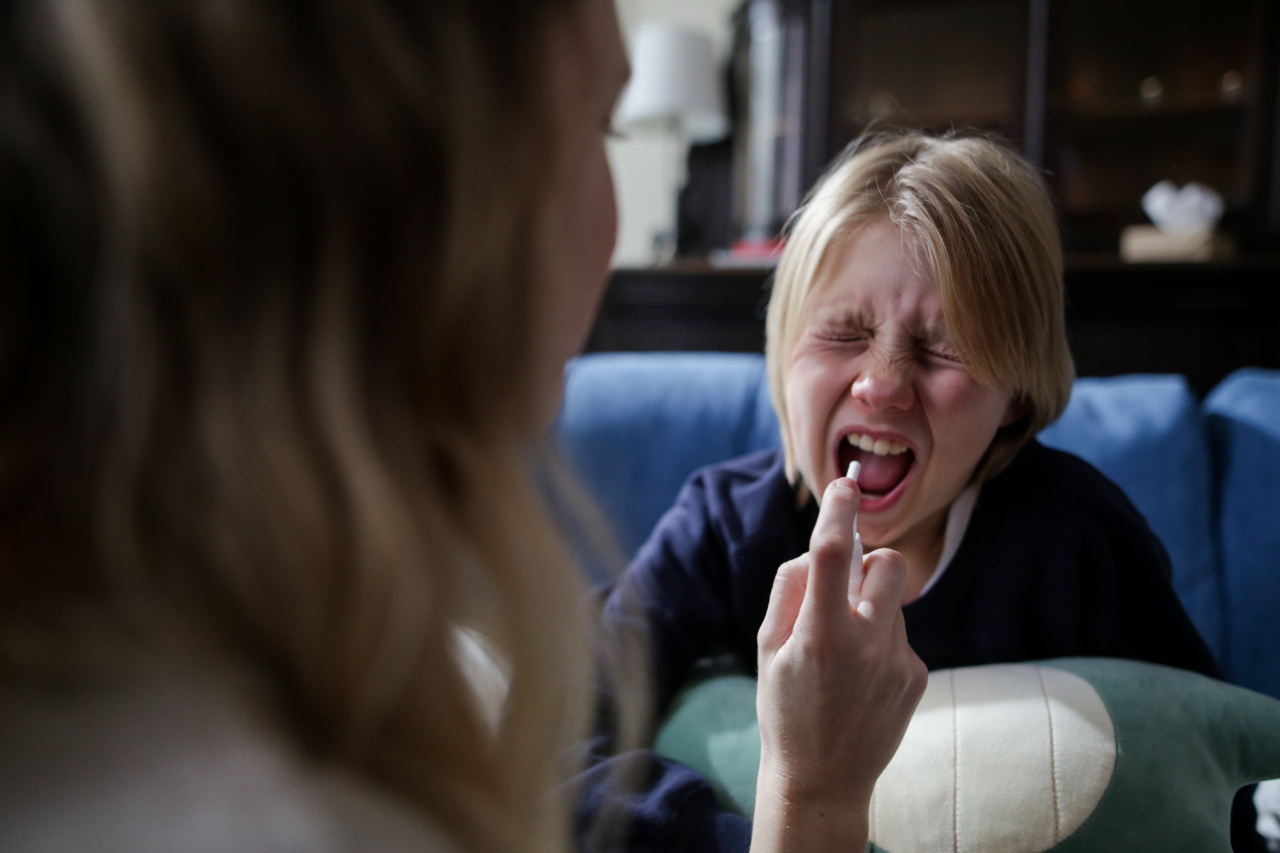Bulimia nervosa is an eating disorder characterized by episodes of binge eating followed by purging behaviors such as self-induced vomiting or excessive exercise.
While this disorder commonly affects adolescents and young adults, it can also manifest in children as young as 10 years old. Child bulimia requires immediate attention and effective treatment approaches to ensure optimal recovery and prevent long-term physical and psychological consequences.
The Role of Parental Participation
Parental involvement plays a vital role in the successful treatment of child bulimia.
Providing an environment of understanding, support, and active participation in the recovery process significantly enhances the effectiveness of treatment interventions. Without parental support and engagement, even the most advanced treatment methods may fall short in addressing the intricate challenges associated with child bulimia.
1. Building Trust and Open Communication
Establishing trust and open communication between parents and their child with bulimia is crucial for effective treatment. Creating a safe space where the child feels comfortable discussing their struggles, fears, and thoughts is essential.
Encouraging open dialogue helps in understanding the root causes of the disorder and addressing them appropriately.
2. Education and Awareness
Parents should take an active role in educating themselves about the nature of bulimia in children, including its symptoms, consequences, and available treatment options.
This knowledge equips parents with the necessary tools to recognize warning signs, intervene early, and provide appropriate support to their child.
3. Collaborative Approach with Treatment Professionals
Working hand in hand with treatment professionals is vital for successful outcomes. Parents should actively participate in therapy sessions and collaborate with healthcare providers to develop an individualized treatment plan.
Regular communication with therapists, dietitians, and medical professionals is crucial to monitor progress, make necessary adjustments, and ensure continuity of care.
4. Establishing Nutritional Balance
Parents can play a significant role in promoting a healthy relationship with food and ensuring a balanced diet for their child.
Collaborating with a registered dietitian can aid in structuring appropriate meals and educating parents on the importance of regular, nutritious eating patterns. This helps to break the binge-purge cycle and establish healthier behaviors around food.
5. Encouraging Positive Body Image
Parents should cultivate a supportive environment that promotes positive body image and self-acceptance. Encouraging realistic and healthy perceptions of body image helps counteract the distorted self-image commonly associated with bulimia.
Promoting a focus on overall well-being rather than appearance alone fosters a more resilient mindset in the child.
6. Implementing Behavioral Interventions
Parental participation in implementing behavioral interventions is crucial for lasting change.
Parents can work with therapists to develop strategies and set clear boundaries around meal times, promote regular exercise habits, and discourage purging behaviors. By offering continuous support and reinforcement, parents can help their child develop healthier coping mechanisms and break destructive patterns.
7. Dealing with Co-occurring Mental Health Conditions
Bulimia often coexists with other mental health conditions such as anxiety or depression. Parental involvement in addressing these conditions is essential.
Collaborating with mental health professionals allows for the effective management of these co-occurring disorders and significantly improves the chances of a successful recovery.
8. Creating a Supportive Home Environment
Parents should strive to create a supportive, nurturing, and reassuring home environment that promotes healing and recovery.
This involves minimizing triggers associated with bulimic behaviors, promoting healthy family dynamics, and fostering a sense of belonging and security for the child.
9. Addressing Underlying Issues
Child bulimia often stems from underlying emotional or psychological issues such as trauma, low self-esteem, or family conflicts. Parents should work with therapists to identify and address these underlying factors.
By addressing the root causes, parents can support their child in developing healthier ways of coping with these challenges.
10. Long-term Support and Preventive Measures
Even after initial recovery, supportive measures and ongoing involvement of parents are crucial in maintaining progress and preventing relapse.
Parents should remain vigilant of potential triggers or signs of relapse and continue to provide a safe space for their child to discuss any concerns or challenges they may face throughout their journey to recovery.
The Importance of Parental Participation in Child Bulimia Treatment
The effective treatment of child bulimia necessitates the active participation of parents throughout the entire recovery process.
By establishing trust, promoting open communication, educating themselves, collaborating with professionals, and providing support at every stage, parents can significantly contribute to their child’s successful recovery and long-term well-being.































